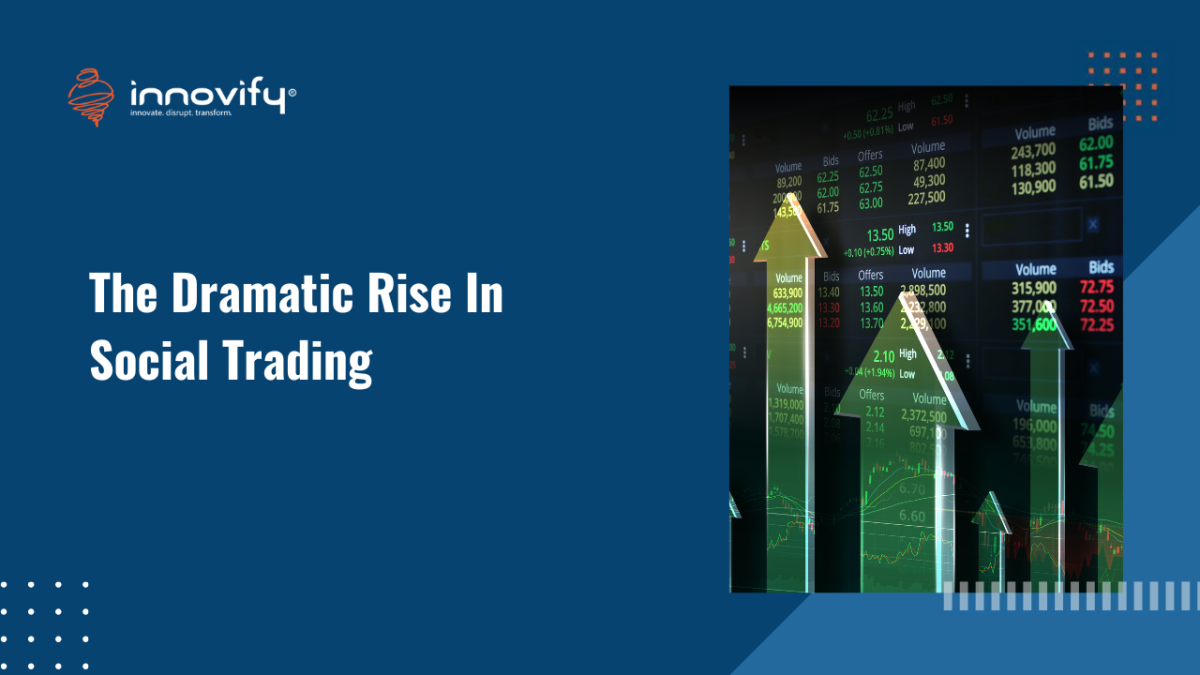AI/ML
THE DRAMATIC RISE IN SOCIAL TRADING
Over the past decade, social media has changed the way we interact with the world. As well as having an impact on how we communicate, how we manage our social lives and how we present ourselves, social media has had a significant effect on everything from global politics and economics to the way corporations connect with their target audience.

Whether you love social networks or have sworn off Facebook for good, it’s impossible to deny the extensive reach and influence of the platforms. Social trading is essentially social media for the financial industry. As the Financial Times puts it, social trading is “adapting the social media phenomenon to create a connected community of savvier private investors.”
With more and more people now signing up to social trading platforms, it’s possible that this new, financially focused form of networking could transform the future of trading around the world.
THE INCREASE IN DEMAND FOR SOCIAL TRADING SERVICES
Almost as soon as social media began to take over the world, people involved in the FX industry saw the potential of a linked social trading network. Increased awareness of these networks, improvements in smartphone technology and the ubiquity of internet access have made it easier than ever for individuals to get online and begin speculating on the FX market.
The rise in online trading platforms has made the FX industry accessible to millions. Less intimidating than dealing directly with brokers and traders, logging onto a website and trading small to medium amounts of cash has become an increasingly popular way to make money.
However, prior to the advent of social trading, these part-time speculators were largely on their own. Although many would pay attention to the transactions of large corporations and experienced individuals, few had access to the sort of expertise required to make serious money in the FX industry.
By joining a social trading platform, individuals can take full advantage of the expertise and the experience of professional traders. This gives part-time investors the opportunity to gain a valuable insight into the industry and to potentially transform their modest earnings into real profits.
MAIN PLAYERS IN THE INDUSTRY
One of the biggest players in social trading is eToro. Founded in 2007, the platform now has over nine million members. In 2014, the company received over $1bn in customer deposits and one million in new registrations in Q4 alone. A major investor in blockchain technology, the company is having a real impact on the financial industry and social trading in particular. Other popular social trading networks include ZuluTrade, Ayondo, Darwinex and SwipeStox.
WHAT THIS LOOKS LIKE IN THE FX INDUSTRY

The numerous positives offered by social trading have led to its adoption by many working in the FX industry. For experienced traders, the main advantage of using one of these platforms is that it can help them to increase their profits. By encouraging investors to make a certain trade, experts can benefit from the proceeds they get for the additional traffic they bring to a brokerage source. Experts are also able to use these platforms to detect market trends and stay up to date with market events.
For investors, the chance to learn from experienced FX traders is invaluable. These platforms give them the opportunity to benefit from savvy financial minds and increase their understanding of the FX industry. What’s more, by investing in a number of platforms or making multiple trades, investors can spread their risk. This can help to prevent big losses and keep fledging FX traders in the black.
THE PROS AND CONS OF SOCIAL TRADING
The pros:
- Learning from professionals – social trading allows beginners to copy professionals and learn from their trades, something that should make success more likely.
- The ease of social trading makes it accessible even to those who don’t have any experience in the industry.
- Copying professionals takes the pressure of your own decision making
- Beginners can look at the trading histories of successful traders and try to copy their techniques.
The cons:
- Traders are not infallible and blindly copying trades can get investors into financial trouble.
- A professional’s past performance is no indication of future success
- Some traders require investors to have large account balances to allow them to copy their trades
- Some investors may have unrealistic expectations when it comes to financial rewards.
THE FUTURE OF SOCIAL TRADING
With many social trading platforms seeing big investment – eToro alone has fundraised $100m to support global expansion and the development of blockchain technologies – the future of the movement looks bright. The Financial Times has reported that FX professionals feel increasingly positive about social trading with more and more embracing ‘social media in the context of trading’.
Creating a win-win situation in which both beginners and experienced traders can benefit, social trading is an increasingly popular choice for many in the FX industry. And if current trends continue, it might not be too long before we’re all connected via social trading platforms.




